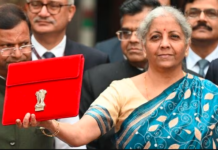The Reserve Bank of India Governor, Raghuram Rajan, is considered to be in possession of on of the most commendable banking acumens in the world and his proposals are met with great seriousness and enthusiasm. His attempts to keep the Rupee out of the global currency wars, especially with the devalued Yuan and India’s Chinese goods demand, has repeatedly been deemed a plan that holds immense credibility. So when on Thursday the RBI Governor and SBI Chairman disclosed their opposing views on the issue of payment banks, after the Governor issued 11 licenses to companies in order to operate payment banks in India, the debate became a central topic of conversation.
WHAT ARE PAYMENT BANKS?
The introduction of Payment Banks has brought with it tons of confusion. These banks are a new age solution, structured on making banking services easily accessible to rural folks and will be a viable option for most of them, as it works through mobile technology, as opposed to a traditional bank set-up.
WHAT CAN THEY DO?
They can’t offer loans but can raise deposits of upto Rs. 1 lakh, and pay interest on these balances similar to how a savings bank account does. They can enable transfers and remittances through a mobile phone and can offer services which include automatic payments of bills, purchases in cashless, cheque-less transactions. These banks cannot issue credit cards but have the service to issue debit cards and ATM cards usable on all bank ATM networks. They come with an option of transferring money directly from your bank account, at no cost, can also provide forex cards to travellers.
DIVIDED OPINIONS
While initially, with the licenses being given out, Payment Banks were being hailed a revolutionary step, but since its recent announcement and debate regarding its credibility as a national project, interesting contrasting points have surfaced. Where the RBI Governor believes these payment banks will be a beneficial addition in the Indian banking sector as people from remote, inaccessible areas will be able to avail a bank’s services as well, Arundhati Bhattacharya is of the opinion that these payment banks could intensify competition to the deposits sphere and eat into their margins. The RBI Supremo defended his decision in lieu of opposing stands on this issue, “I don’t think these 11 new banks are a threat to the existing banks. These new banks will complement the existing system by traversing the last mile. The reason for this is that there is nothing the universal banks cannot do that the payments banks can do. But there are some…..things that the payments banks can’t do which the universal banks can.” Bhattacharya however, offered an interesting retort, increasing the chances of possible re-evaluation of this program and its policies, “if they go for poaching rates, many of the commercial banks could lose a portion of the deposits which are relatively lower priced, and this may affect their ability to transmit rates and give further loans at lower rates.”
While the opinion in the market is just as biased and divided as that of the two banking chiefs, the latter’s point of view is finding many takers. The concern is based on the possibility of a competition between the universal banks and the payment banks, which are being established to make banking operations in the rural areas more viable, which may result in big players like Airtel, Reliance and PayTM, indeed taking a big chunk off the universal bank margins. Another opinion gaining tremendous response stems from the fact that Payment banks appear to be a direct threat to nationalised banks, which are both short of capital and burdened with costs. This is because the cost structures of universal banks will be higher than that of payment banks and that the latter will opt for a minimum number of branches, which will aim to maximise customer-reach through technology, especially mobile technology.
What is certain, however is the fact that small banks and Payment Banks will, in the whole deal lend to an increase in the growth of competition in Indian banking.












